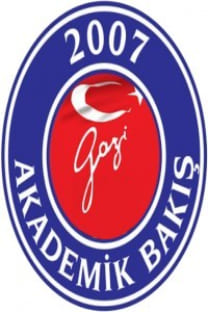Vekâlet Savaşında Yanlış Hesap: Suriye İç Savaşında Amerika Birleşik Devletleri ve Rusya’ya Neoklasik Realist Perspektiften Bakış
Suriye İç Savaşı, Neoklasik Realizm, Yanlış Hesaplama
Miscalculation in Proxy War: The United States and Russia in Syrian Civil War from the Neoclassical Realist Perspective
Syrian Civil War, Neoclassical Realism, Miscalculation,
___
- AKBARZADEH, Shahram, and Arif Saba. “UN paralysis over Syria: The responsibility to protect or regime change?” International Politics 56, no. 4 (2019): 536– 50. https://doi.org/10.1057/s41311-018-0149-x.
- ALLISON, Roy. “Russia and Syria: Explaining alignment with a regime in crisis.” International Affairs 89, no. 4 (2013): 795–823. https://doi.org/10.1111/1468- 2346.12046. ASSEBURG, Muriel, Wolfram Lacher, and Mareike Transfeld. “Mission impossible? UN mediation in Libya, Syria and Yemen.” Stiftung Wissenschaft und Politik -SWP- Deutsches Institut für Internationale Politik und Sicherheit, Berlin,
- 2018. https://nbn-resolving.org/urn:nbn:de:0168-ssoar-60446-4. BBC Turkish. “Suriye Annan Planı’nı kabul etti.” 2012. Accessed January 26, 2020. https://www.bbc.com/turkce/haberler/2012/03/120327_syria_annan.
- BBC Turkish. “Barış Pınarı Harekâtı - Pentagon: Türkiye’nin Olası Harekât Güzergâhı Üzerindeki Güçlerimizin Yerini Değiştirdik.” 2019. Accessed November 4, 2019. https://www.bbc.com/turkce/haberler-dunya-49980630.
- CROSSTON, Matthew D. “Cold War and Ayatollah Residues Syria as a Chessboard for Russia, Iran, and the United States.” Strategic Studies Quarterly 8, no. 4 (2014): 94–111.
- CROWLEY, Michael, and Carlotta Gall. “In Trump, Turkey’s Erdogan Keeps Finding a Sympathetic Ear.” Accessed November 4, 2019. https://www.nytimes.com/2019/10/08/us/politics/trump-erdogan-turkey-visit.html.
- ÇAKMAK, Cenap, and Ali Onur Özçelik. “The World Community and the Arab Spring.” 2019. https://doi.org/10.1007/978-3-319-60985-0.
- DEMIRCI, Yasin. “Suriye Krizinde “Anayasa Komitesi” Dönemeci.” Accessed October 28, 2019. https://www.aa.com.tr/tr/info/info/infografik/15990.
- ISSN: 1307-9778
- Yayın Aralığı: 2
- Başlangıç: 2007
- Yayıncı: Hale Şıvgın
Milli Mücadele Yıllarında Salihli’nin İşgali ve Kurtuluşu
Kızıldeniz’de Güvenlik: Bölgesel Sorunlar, Güç Mücadelesi ve Terörizm
Kitap Değerlendirme - HUKUKUN ÜSTÜNLÜĞÜ: TARİH, SİYASET VE TEORİ
Osmanlı Devleti’nde Tanzimat Reformlarını Düzenleyici Bir Kurum Olarak Şura-yı Devlet (1868-1876)
Osmanlı Devleti’nde Tanzimat Reformlarını Düzenleyici Bir Kurum Olarak Şura-yı Devlet
İdeolojinin Türk Hukukuna Yansıması: Komünizm Örneği (1923-1960)
